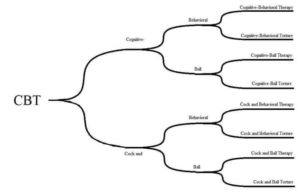Podcast: Play in new window | Download
Subscribe: RSS
We address frustration with how hard it is to wrangle these brains.
Wikipedia on Cognitive Distortions
Richard Wiseman’s books 59 Seconds, and As If
Animal Madness book
A free cbt workbook
We mention CBT a lot.
The movie Velvet Buzzsaw
MAPS (psychedelic therapy)
Hey look, we have a discord! What could possibly go wrong?
Rationality: From AI to Zombies, The Podcast… and the other podcast
LessWrong posts Discussed in this Episode:
Radical Honesty
We Don’t Really Want Your Participation
Applause Lights
Next Episode’s Sequence Posts:
Rationality and the English Language
Human Evil and Muddled Thinking
Big thanks to David for our intro music! Check out his music and VFX here!
We’d like to thank creators of our new outro music from the Sumerki Project! Check out their stuff here!


Posting here because this will be somewhat long, and discord in general seems like more of an in-the-moment chat platform than a long-form platform.
The emphatic statement that the west coast fires are not from global warming is not entirely correct. There are several factors at play here, and climate change is a major one. Increasing fire along the western coast, and around the world in mediterranian climates, has been a predicted outcome of climate change for quite a while.
https://www.fs.fed.us/pnw/pubs/pnw_gtr870/pnw_gtr870.pdf
https://www.skepticalscience.com/wildfires-global-warming.htm
https://www.carbonbrief.org/explainer-how-climate-change-is-affecting-wildfires-around-the-world
https://www.scientificamerican.com/article/heres-what-we-know-about-wildfires-and-climate-change/
The long and short of this is that climate change is affecting vegetation; heat stress and lack of water are both directly increasing the fuel load in forests by killing trees directly,
https://washingtondnr.wordpress.com/2019/06/06/is-my-tree-dying-how-climate-change-and-drought-are-changing-the-landscape/
https://www.nationalgeographic.com/science/2020/05/grand-old-trees-are-dying-leaving-forests-younger-shorter/#close
https://insideclimatenews.org/news/24042020/forest-trees-climate-change-deforestation
https://www.nytimes.com/2017/12/11/science/trees-climate-die-offs-west.html
https://ppo.puyallup.wsu.edu/plant-health-concerns/redcedar/
https://www.thestar.com/vancouver/2019/06/13/western-red-cedars-are-dying-of-drought-in-vancouver-and-scientists-say-its-one-more-portent-of-climate-change.html
https://sflonews.wordpress.com/2019/12/04/western-redcedar-east-of-the-cascades-a-species-in-decline/
http://blogs.oregonstate.edu/mgmetro/2019/10/04/natters-notes/
https://www.statesmanjournal.com/story/news/2019/07/22/drought-summer-weather-climate-change-killing-oregon-trees-douglas-fir/1740863001/
and increasing fuel load by stressing trees, which makes them vulnerable to insect and disease damage, killing them indirectly.
https://yaleclimateconnections.org/2020/03/global-warming-fuels-bark-beetles-tree-killing-menaces/
https://www.usda.gov/media/blog/2012/05/18/impact-climate-change-forest-diseases-assessed-new-us-forest-service-report
https://www.nrs.fs.fed.us/pubs/gtr/gtr-nrs-p-51papers/33venette-p-51.pdf
https://www.fs.usda.gov/ccrc/topics/bark-beetles-and-climate-change-united-states
https://www.youtube.com/watch?v=OyGT7-XWPu0
https://dnrtreelink.wordpress.com/2018/07/03/emerging-issues-with-western-hemlock-and-douglas-fir/
https://grist.org/climate-energy/oh-rot-climate-change-could-topple-northwests-douglas-fir-forests/
Furthermore, vegetation can be dehydrated compared to the healthy normal, making that vegetation burn hotter and faster.
https://link.springer.com/article/10.1007/s10584-012-0668-1
https://www.auburn.edu/academic/forestry_wildlife/fire/weather_elements.htm
https://www.researchgate.net/publication/340279708_Climate_change_is_increasing_the_risk_of_extreme_autumn_wildfire_conditions_across_California
https://www.skepticalscience.com/climate-change-australia-unprecedented-bushfires.html
Climate change is also changing local weather patterns, making the fire seasons longer, https://climate.nasa.gov/news/2315/study-fire-seasons-getting-longer-more-frequent/
and increasing the rate of lightning strikes that are the source of natural wildfires
https://www.sciencedaily.com/releases/2018/05/180531084415.htm
https://www.nationalgeographic.com/news/2014/11/141113-climate-change-lightning-atmosphere-science/
https://www.nytimes.com/2020/08/23/us/dry-thunderstorms-california-fires.html
It is also true, of course, that a century of fire suppression has prevented the routine clearing of brush and downed limbs that would normally occur. However, many of the fires are burning over each other year after year, which suggests that mere fire suppression is not the major factor at play.
https://climate.nasa.gov/blog/2830/six-trends-to-know-about-fire-season-in-the-western-us/
all of the above are made more economically problematic by the fact that humans are moving further and further out into rural and wilderness areas, so even if the burned acreage were steady from year to year (it is actually increasing),
https://www.iii.org/fact-statistic/facts-statistics-wildfires#Annual%20Number%20of%20Acres%20Burned%20in%20Wildland%20Fires,%201980-2019
the economic harm would be increasing.
https://www.iii.org/fact-statistic/facts-statistics-wildfires#Top%2010%20Costliest%20Wildland%20Fires%20In%20The%20United%20States%20(1)
https://www.pnas.org/content/115/13/3314
Unfortunately, wildfires are also a positive-feedback mechanism that accelerate global warming.
https://climate.nasa.gov/news/2912/satellite-data-record-shows-climate-changes-impact-on-fires/
https://www.washingtonpost.com/graphics/2019/national/gone-in-a-generation/forest-climate-change.html
Of course, I welcome any evidence that I am incorrect on these factors, not least because being wrong would mean that I’m less likely to spend two weeks hiding inside from hazardous air conditions every year. I’m also quite fond of the Pacific Northwest’s rain forest ecosystems, and being wrong about their decline would be welcome.